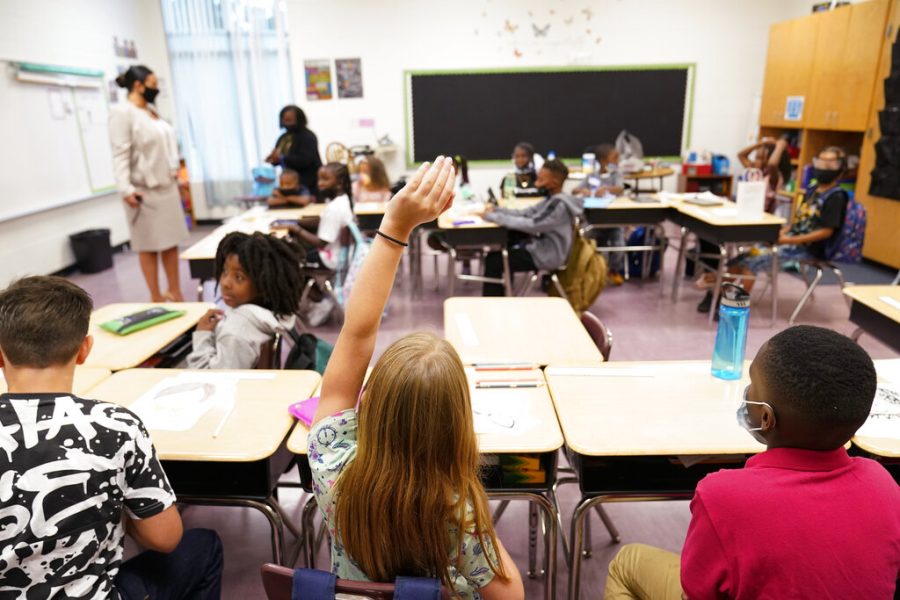Fundraising Ideas to Help Save Temecula Schools and Programs
Fundraising Ideas to Help Save Temecula Schools and Programs
Blog Article
Recognizing the Significance of Colleges in Youngster Advancement and Area Growth
Colleges' interaction with regional neighborhoods through service-learning efforts reinforces the bond in between households and educational organizations. This symbiotic relationship highlights the relevance of colleges in nurturing active citizenship and long-lasting learning behaviors.
Academic Success
Academic accomplishment serves as a keystone of kid advancement, providing the structure whereupon future knowing and success are built. Colleges play an essential role in cultivating this scholastic growth, supplying structured environments where youngsters can acquire crucial understanding and cognitive skills. Standard curricula guarantee that pupils gain efficiency in core subjects such as mathematics, scientific research, and language arts, which are important for both higher education and learning and specialist opportunities.
Along with imparting fundamental academic abilities, institutions additionally grow critical reasoning, analytic capacities, and intellectual interest. These cognitive proficiencies are essential for browsing complex real-world scenarios and adapting to the ever-evolving demands of the modern work environment. Educators, as facilitators of discovering, utilize varied pedagogical methods to provide to diverse knowing designs, thus making the most of specific student possibility.
Additionally, academic success is carefully linked to self-worth and motivation. Kids who experience scholastic achievements are more probable to develop a favorable self-concept and a long-lasting passion for knowing. Schools also use numerous resources, such as libraries and technology, which additionally boost the instructional experience and prepare students for a technologically advanced society.
Social Skill Advancement
Beyond scholastic success, the role of schools in social skill advancement is crucial. Schools function as a primary venue for children to learn and practice vital social abilities such as dispute, teamwork, and communication resolution. In the structured environment of a classroom, pupils connect with peers, educators, and various other institution personnel, providing various chances to develop these vital abilities.
Effective social ability growth in institutions is promoted via group activities, joint tasks, and extracurricular programs. These interactions help students recognize social standards, build compassion, and cultivate a sense of community. For example, team projects teach students how to interact in the direction of a typical goal, listen to various viewpoints, and navigate differences constructively.

The growing of social skills during institution years lays a structure for future individual and expert connections. Save Temecula Schools. As trainees develop, the capacity to efficiently team up and connect comes to be increasingly crucial, underscoring the institution's important role in holistic kid advancement
Direct Exposure to Variety
Exposure to diversity in institutions is fundamental to fostering an inclusive attitude and expanding pupils' point of views. Schools offer as a microcosm of the broader culture, and encountering varied cultures, languages, and socioeconomic backgrounds within this atmosphere furnishes trainees with crucial abilities for browsing a significantly globalized globe. This exposure urges compassion, lowers prejudices, and promotes shared respect among peers.
Research suggests that pupils that interact with peers from diverse histories show much better analytic abilities and look at here now creative thinking. This understanding of diversity prepares trainees for future workplaces that value modern proficiency - Save Temecula Schools.

Neighborhood Engagement
The advantages of varied class expand past the school wall surfaces, cultivating a solid sense of community interaction amongst trainees. By communicating with peers from various cultural, socioeconomic, and ethnic backgrounds, students obtain a more comprehensive viewpoint and an admiration for variety. This exposure urges them to come to be active citizens that want to contribute positively to their neighborhoods.
Institutions that highlight neighborhood interaction often include service-learning jobs, which enable trainees to resolve real-world problems while using scholastic abilities. These projects not only boost trainees' understanding of their coursework but also instill a sense of duty and empathy. Collaborations between institutions and neighborhood companies offer pupils with possibilities to get involved in neighborhood occasions, better solidifying their duty as view publisher site aggressive area participants - Save Temecula Schools.
Additionally, parental and community participation in colleges reinforces the bond in between schools and the areas they serve. They develop a collective environment that profits all stakeholders when institutions open their doors to area events, workshops, and volunteer opportunities. This common support group ensures that students obtain alternative advancement, preparing them to come to be all-around individuals who value and contribute to their areas. Through these efforts, schools play a critical role in nurturing area interaction and cultivating societal development.
Lifelong Understanding Routines
Developing lifelong understanding behaviors is important for a child's continuous development and adaptability in an ever-changing world. Colleges play a pivotal duty in instilling these habits by creating an environment that cultivates inquisitiveness, vital reasoning, and a love for expertise. Via extracurricular activities and varied curricula, instructors urge trainees to discover various subjects, examine details seriously, and apply their discovering to real-world scenarios.

Furthermore, colleges provide a structured environment where youngsters can develop self-discipline and time monitoring abilities, both of which are essential for continuous understanding. By emphasizing the significance of establishing objectives, reviewing progression, and adapting methods, universities prepare students to navigate the intricacies of grown-up life, guaranteeing they continue to be long-lasting learners and factors to culture.
Verdict
In verdict, institutions are necessary in promoting child development and community development by providing environments conducive to scholastic accomplishment, social skill advancement, and exposure to diversity. Inevitably, colleges cultivate lifelong learning behaviors, outfitting individuals with the needed understanding and skills to add positively to society.
In the structured setting of a class, students communicate with peers, instructors, and various other school personnel, offering various possibilities to create these critical capabilities.
In significance, exposure to diversity within colleges not only enhances individual trainees yet also strengthens the social material of the area as a whole.
The advantages of varied class extend beyond the institution wall surfaces, cultivating a strong feeling of area engagement among trainees.Institutions that highlight community interaction frequently incorporate service-learning projects, which enable students to deal with real-world issues while using scholastic abilities. Partnerships between schools and regional companies give pupils with possibilities to participate in community events, further solidifying their role as proactive community members.
Report this page